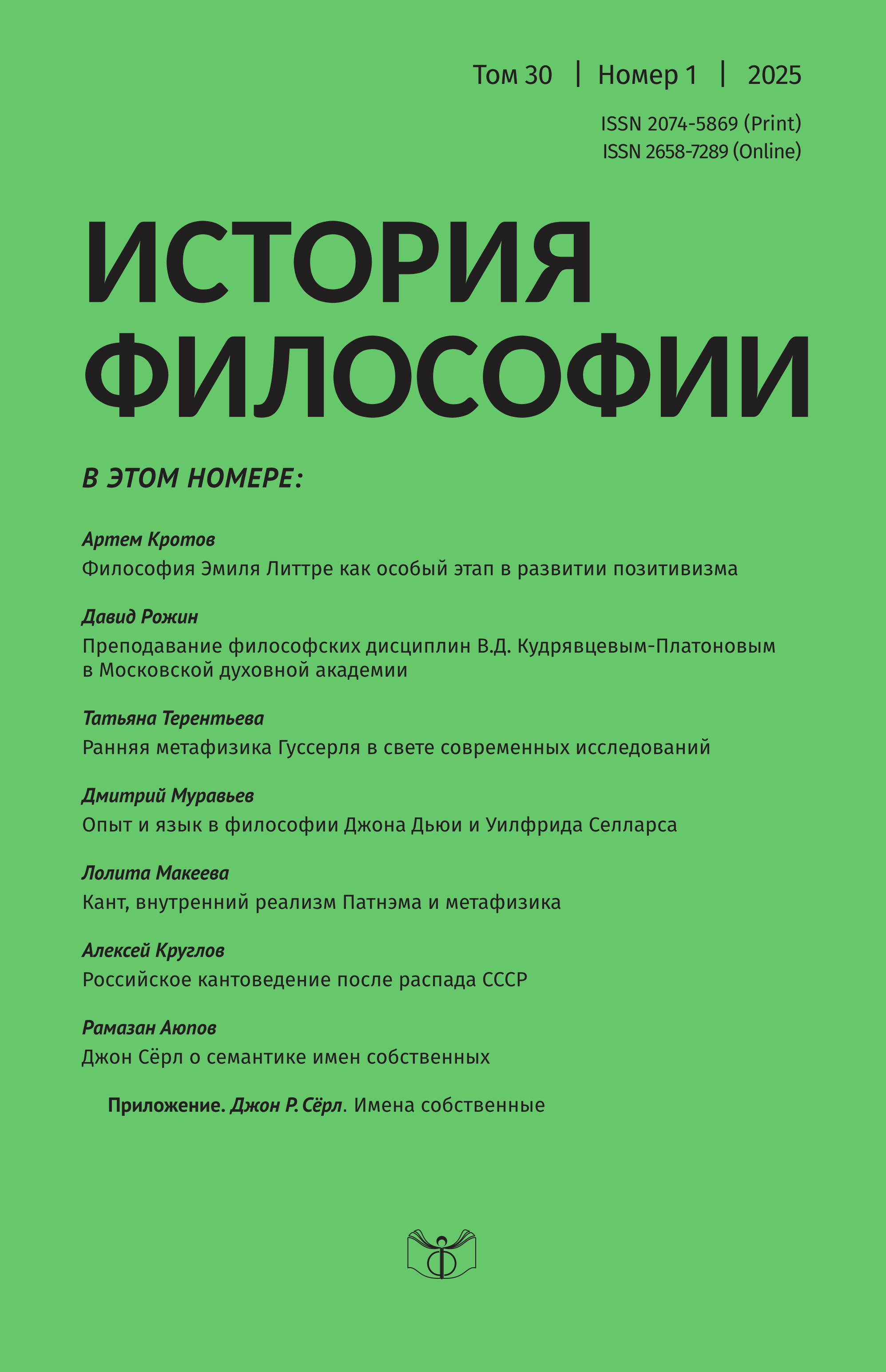Experience and Language in the Philosophy of John Dewey and Wilfrid Sellars
DOI:
https://doi.org/10.21146/2074-5869-2025-30-1-64-75Keywords:
J. Dewey, W. Sellars, pragmatism, analytic philosophy, empiricism, philosophy of language, American philosophy, interactionism, connectionismAbstract
The article is devoted to the problem of the correlation of experience and language in the philosophy of American thinkers J. Dewey and W. Sellars. They both formulated their positions on this topic during the criticism of the classical empirical tradition, defending the thesis of the intersubjectivity of linguistic meanings. However, it is experience that is the watershed between them. For Dewey, experience is crucial in the question of the origin and use of language. But Sellars and his followers like R. Rorty and R. Brandom tried to get rid of this, in their opinion, outdated concept. Despite the fact that the main characters of the article do not coincide in their conclusions, both Dewey and Sellars turned out to be consonant with modern theories of linguistic behavior not only in philosophy, but also in interdisciplinary research.

